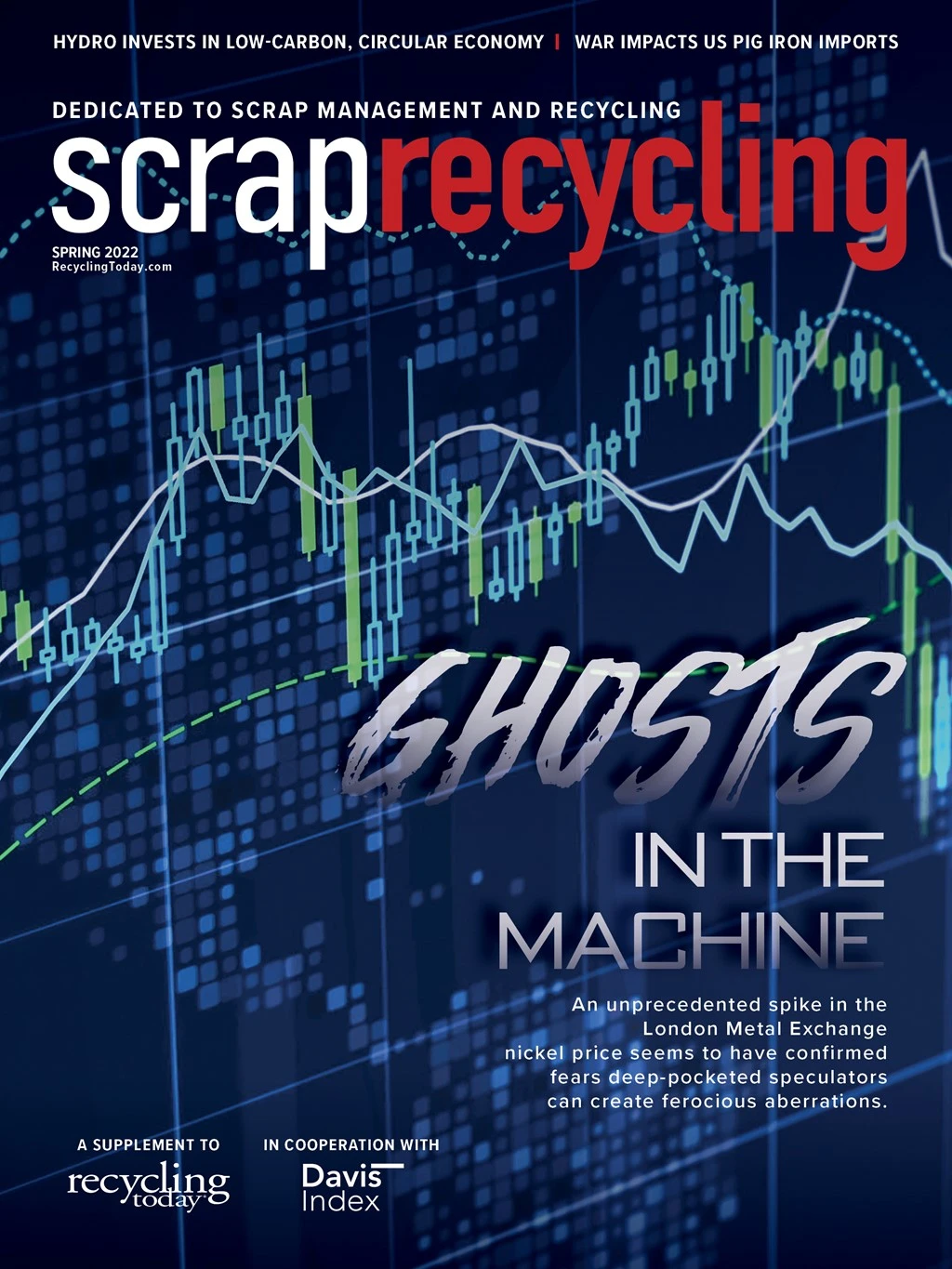Nonferrous metals markets have been volatile since Russia invaded Ukraine in late February. That war and the sanctions placed on Russia have contributed to the volatility, with the International Monetary Fund (IMF) in its April “Global Financial Stability Report” writing, “The severity the disruptions in the commodity markets and to global supply chains will weigh heavily on the outlook for inflation, the global economy and possibly macrofinancial stability.”
According to the IMF report, policymakers will face structural challenges brought to light by the war in Ukraine. “These include a change in the perception of the trade-offs between energy security and climate transition at a time when higher commodity prices and supply disruptions will likely make the transition toward energy renewables more costly and complex.”
Nickel, a metal that has a prominent role to play in the energy transition, saw unprecedented volatility in March. As a result, the London Metal Exchange (LME) suspended trading of its nickel contracts for six trading days. (For more on how some traders have responded to the LME’s actions, see “Ghosts in the machine.")
Even the IMF commented on the LME nickel trading suspension in its report, writing that these developments “suggest that there are a number of potential lessons for policymakers to consider.” The IMF says that while the LME’s objective in canceling the trades was to stabilize the nickel market, its action put counterparties with long positions at a disadvantage. “This risks a migration of exchange-traded contracts into uncleared over-the-counter derivatives, which are more opaque and do not have the same mechanisms for mitigating counterparty risks. Disruptions in commodity derivative markets are particularly problematic at the current juncture of volatile prices and supply bottlenecks.”
“While the LME says it intends to appoint those reviewers ‘as soon as practicable,’ it also says, ‘the full and detailed scope of the independent review has yet to be determined.’”
An April announcement from the LME regarding its nickel contract turbulence indicates the exchange will conduct an internal review in addition to the one being conducted by the Bank of England and the United Kingdom’s Financial Conduct Authority.
Regarding its own, parallel review, LME says it “will engage an experienced independent party (or parties) to undertake the independent review.”
While the LME says it intends to appoint those reviewers “as soon as practicable,” it also says “the full and detailed scope of the independent review has yet to be determined” nor has the timeline.

Explore the Spring 2022 Scrap Recycling Issue
Check out more from this issue and find your next story to read.
Latest from Recycling Today
- Nextek, Coveris to recycle food-grade plastic film
- Recyclekaro expands recycling capacity
- USTR hears comments on port fee proposal
- C&D World 2025 hits record attendance and exhibitor numbers
- Denali now offers mobile depackaging service
- Hyundai confirms Louisiana as EAF mill site
- ASCE sees infrastructure progress, but more to be done
- Global steel output tapers downward






